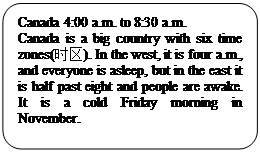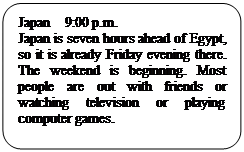题目内容
We can make mistakes at any age. Some mistakes we make are about money. But most mistakes are about people.
Why do we go wrong about our friends? Sometimes people hide their real meanings when they say something. And if we don’t really listen, we miss the feeling behind the words. Suppose someone tells you, “You’re a lucky dog.” That’s being friendly. But “lucky dog”? There’s a bit of envy(嫉妒) in those words. Maybe he doesn’t see _it_ himself. But “lucky dog” puts you down a little. He may mean you don’t deserve your luck.
How can you tell the real meaning behind someone’s words? One way is to take a good look at the person talking. Do his words fit the way he looks? Do his words agree with the tone(语调) of voice? His posture(姿态)? The look in his eyes? Stop and think. If you spend the minute thinking about the real meaning behind one’s words, it may save another mistake.
小题1:According to the passage, the reason why we go wrong about our friends is that ______.
小题2:What does the underlined word “it” in the second paragraph refer to(指) ?
小题3:From the passage, how many things should we pay attention to when we take a good look at the person talking?
小题4:According to the passage, the writer most probably is a ______.
小题5:This passage is about __________.
Why do we go wrong about our friends? Sometimes people hide their real meanings when they say something. And if we don’t really listen, we miss the feeling behind the words. Suppose someone tells you, “You’re a lucky dog.” That’s being friendly. But “lucky dog”? There’s a bit of envy(嫉妒) in those words. Maybe he doesn’t see _it_ himself. But “lucky dog” puts you down a little. He may mean you don’t deserve your luck.
How can you tell the real meaning behind someone’s words? One way is to take a good look at the person talking. Do his words fit the way he looks? Do his words agree with the tone(语调) of voice? His posture(姿态)? The look in his eyes? Stop and think. If you spend the minute thinking about the real meaning behind one’s words, it may save another mistake.
小题1:According to the passage, the reason why we go wrong about our friends is that ______.
| A.we fail to listen carefully when they talk |
| B.we become angry when we realize what they really mean |
| C.they sometimes said one thing but meant another |
| D.we never believe what people say |
| A.Being friendly | B.A bit of envy | C.A lucky dog | D.The good luck |
| A.Three | B.Five | C.Six | D.Four |
| A.teacher | B.psychologist(心理学家) |
| C.farmer | D.doctor |
| A.how to tell the real meaning behind our words |
| B.what to do when you listen to others talking |
| C.how to avoid(避免) mistakes when communicating with people |
| D.why we must know the wrong we will do |
小题1:C
小题2:B
小题3:D
小题4:B
小题5:C
试题分析:本文中主要分析了在生活交际中,如何理解一些话语中隐藏着的含义的问题,告诉我们如何避免这些错误。
小题1:根据第二段Why do we go wrong about our friends? Sometimes people hide their real meanings when they say something.描述,可知选C。
小题2:联系前一句There’s a bit of envy(嫉妒) in those words.描述,可知选B。
小题3:根据第二段Do his words fit the way he looks? Do his words agree with the tone(语调) of voice? His posture(姿态)? The look in his eyes? 描述,可知选D。
小题4:这篇短文主要谈论了在交际中隐藏在话语背后的含义,这主要涉及心理学方面的知识,故作者可能是一位心理学方面的专家,选B。
小题5:根据最后一段If you spend the minute thinking about the real meaning behind one’s words, it may save another mistake.及上文描述,可知本文主要谈论的是如何避免交际中的错误。故选C。
点评:本文中长句较多,一时很难读懂句子含义,注意多读几遍,不要强求非得理解一词一句的含义,能把握文章大意就行。然后带着问题阅读短文,一般就能顺利找出答题依据。对于不能直接找到根据的问题注意联系上下文,根据短文中心总结出正确答案。

练习册系列答案
 名师导航单元期末冲刺100分系列答案
名师导航单元期末冲刺100分系列答案 名校名卷单元同步训练测试题系列答案
名校名卷单元同步训练测试题系列答案
相关题目




